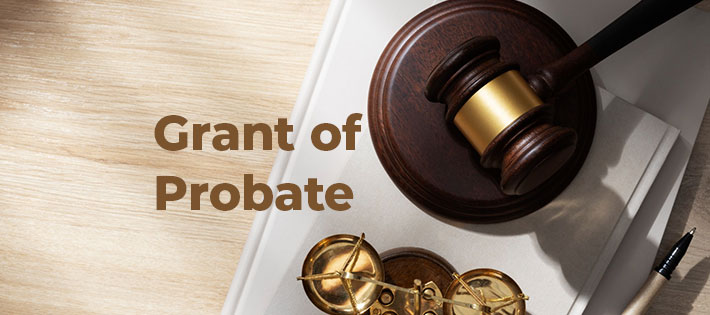When You Need Singapore family lawyer – Grant of Probate
You will often need to seek a grant of representation through a Singapore family lawyer, which is a certificate that provides you with the authority to administer an estate if you have agreed to assist in the distribution of the property and funds of a close friend or family member who has passed on.
When individuals refer to a grant of probate, they often imply something similar. We'll walk you through all the information you require on grants of representation and how to apply for one.
Grant of representation explained:
A grant of representation is a document that certifies that you or the executor of a will has the authority to manage a decedent's estate. If a grant of representation is equivalent to a grant of probate, may the issue then arise?
The answer is yes and no.
In the same way, a Fiesta is a sort of Ford or an apple is a form of fruit, a grant of probate is one kind of grant of representation. The same is true of probate grants; not all probate awards are also grants of representation.
In reality, there are two ways to receive a grant of representation:
An estate grant:
An executor of a will applies for a grant of probate, which gives them the authority to handle the estate. They can now use the deceased's funds and distribute their possessions in line with the terms of the will.
Getting administrative letters:
If the decedent died intestate—without leaving a will—a family member should petition for a grant of letters of administration with the help of a family law firm in Singapore. It allows you to handle any assets and govern the estate, as the name would imply.
Purpose of a grant of probate:
An estate's executor is in charge of gathering the assets of the deceased, paying off any debts, and then distributing the remaining assets to the beneficiaries. An executor is given legal permission to administer a decedent's estate following the terms of the decedent's will by receiving a grant of probate. The executor has the authority to present the grant of probate to those who are debtors of the estate or who presently own assets of the estate, such as banks and retirement communities that hold bonds, and to demand that they transfer the assets or funds to the executor.
A registrar examines and decides uncontested applications for grants of probate in chambers. Grants in the common form are probate grants issued after an uncontested application.
Can you apply for probate?
Executors appointed and substituted:
The testator normally specifies in the will who he or she wants to serve as the executor or executor. It is not feasible to apply for probate if the will does not name an executor. In certain situations, a will's beneficiary may apply letters of administration with the will attached.
Sometimes the executor will name the first preference, but under certain circumstances—typically when the first choice has predeceased the testator or is unable or unwilling to serve—the executor may choose an alternate individual.
The established executor or executors and replacement executor or executors are the two terms used when the testator names one or more people as his or her first choice and then names another person or people as a backup.
Marriage or divorce after the will has been executed:
The will could be revoked if the testator marries or remarries after completing it. The testator did not get married after making the will, according to the executor's affidavit. If this is not the case, you want to see a lawyer to determine if the will has been cancelled or not. A will is often only left intact by a future marriage in cases where it explicitly states that it was created with marriage in mind.
The former spouse's claim under the will and their authority to serve as the executor of the will are often also revoked by divorce.
Resigning from the role of an executor:
If the will's nominated executor does not want to assume the position, they may renounce probate. The remaining established executors may apply if the renouncing executor is one of many. If the will specifies that the substitute executor(s) take effect if the initiated executor(s) renounce probate or fail to act, and the renouncing executor is the sole surviving instituted executor, then the substitute executor(s) may be eligible.
Before applying for probate, the Registry will accept a renunciation of probate. The form is often sent to the executor who intends to petition for probate rather than the executor who is declining it, and it is submitted along with the application.
Ms D Ganaselvarani founded D RANI & COMPANY on October 1, 1999, serving as the top family lawyer in Singapore. Due to Ms D. Ganaselvarani's dedication to providing her customers with prompt and competent legal services, as well as the testimonials of several delighted clients.
In the said field, honesty and integrity are values that our company upholds. We constantly strive to give our clients an honest assessment of the legal difficulties at hand as well as practical recommendations. Additionally, we are aware that each of our clients has a different level of financial stability, therefore we always strive to offer flexible and reasonable payment plan choices.
